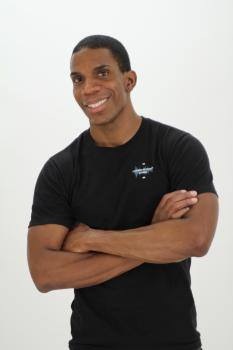Survivors of sexual assault may feel anxiety, stress, or fear for some time after experiencing a traumatic life event. These symptoms of post-traumatic stress disorder (PTSD) can make it difficult to adjust or cope, and may occur long after the assault. Flashbacks, reliving the assault, and increased anxiety are other common symptoms of PTSD. In June, as part of PTSD Awareness Month, RAINN is focusing on survivors who have suffered from PTSD. William and Ashley, both survivors, share how they are learning to heal while continuing to cope.

William Turner
When William Turner was 5 years old, he was repeatedly sexually abused by his older male cousin. As a gay man who grew up in a Southern Baptist community, William kept the abuse a secret in fear of the reactions he might receive from family and friends. “I used to think that being sexually victimized was the product of being gay or vice versa. They are not,” he said.
Now William copes with PTSD that is often brought on from environmental stressors. “One may come to a place where they may forgive but they never forget,” he said. “I have not forgotten. I am reminded of this still almost every night, especially as a gay man, when someone touches me, raises their voice, or I find myself in an aggressive situation where I witness others being treated in a hostile manner.” He says he does his best to avoid these prompts in order to reduce the stress that comes along with PTSD.
Overall, though, William says his greatest coping mechanism has been reaching out to others. He has had careers in fitness, wellness coaching, teaching, and youth mentorship, and is working toward building his own business that focuses on wellness and self-esteem. Furthermore, he wants to be an advocate and inspiration for young boys who have been sexually abused.
“We all have a story to tell. Who we tell them to and the lives we change in the process can make all the difference in the world,” said William.

Ashley Stevens
At the age of 19, Ashley Stevens was raped by a female friend while they were on an overnight trip. When she spoke about her experience, many people told her same-sex rape did not exist or that it only rarely happened. “When you, as a survivor, are hearing things like this from your local rape crisis center and from a sociology/women's studies college professor, what are you supposed to think? They're professionals. They're older than you are. Maybe they have a point,” said Ashley.
Ashley’s experiences with PTSD have manifested themselves in panic attacks brought on by situations that remind her of the assault, such as overnight trips and hotel rooms. She says that finding a professional who can help a survivor unpack their emotions and teach useful coping strategies is crucial. “I have always armed myself with knowledge to combat any monster or foe I face. The more I know, the less I have to fear,” she said.
Now Ashley hopes to one day open a rape crisis center that focuses on members of the LGBT community who have experienced sexual violence. She uses her membership in the RAINN Speakers Bureau to speak out about her experience, and inspire others to do the same. “You have a story to tell, and when you're ready to tell it, there isn't a soul on the face of the earth who can keep you quiet,” said Ashley.
To learn more about coping with PTSD, click here.
For Additional Help
If you know or suspect someone is suffering from PTSD:
- Offer emotional support, understanding, patience, and encouragement.
- Learn about PTSD, including available recovery resources and treatments.
- Remember that with time and treatment, victims of PTSD can see improved symptoms and effective management of the disorder.
Other resources
National Sexual Assault Hotline
800.656.HOPE
National Center for PTSD (For Veterans and the General Public)
802.296.6300
Mayo Clinic
National Institute of Mental Health
Anxiety Disorders Association of America
The National Child Traumatic Stress Network